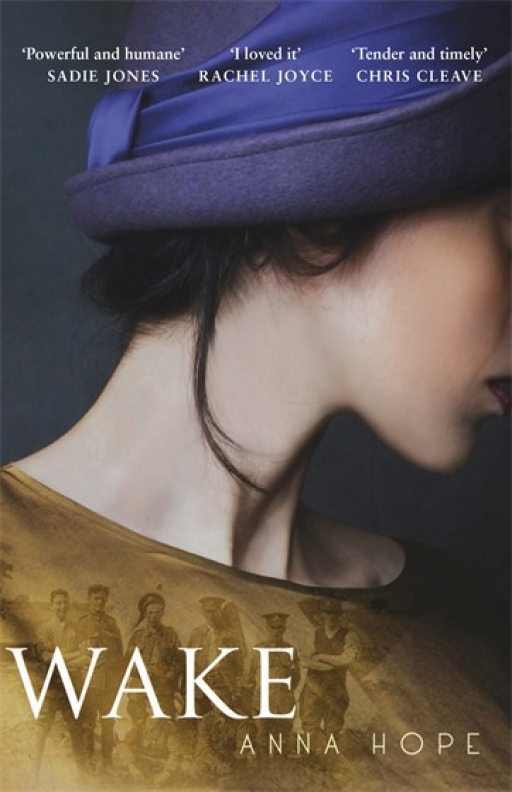Publisher’s Description
“Five Days in November, 1920: As the body of the Unknown Soldier makes its way home from the fields of Northern France, three women are dealing with loss in their own way: Hettie, who dances for sixpence a waltz at the Hammersmith Palais; Evelyn, who toils at a job in the pensions office, and Ada, a housewife who is beset by visions of her dead son. One day a young man comes to her door. He carries with him a wartime mystery that will bind these women together and will both mend and tear their hearts.
A portrait of three intertwining lives caught at the faultline between empire and modernity, Wake captures the beginnings of a new era, and the day the mood of the nation changed for ever.”
Centenary News Review
Reviewed by: Eleanor Baggley, Centenary News Books Editor
‘The war’s over, why can’t all of them just bloody well move on?’
Set over five days in November 1920, Wake is a novel about coming to terms with grief. The action centres on the Armistice celebration and the burial of the Unknown Warrior in Westminster Abbey. The individual stories of the three central women run parallel to the journey of the Unknown Warrior until they merge (in what can only be called a heartbreakingly hopeful way) on Armistice Day.
For a debut novel, Wake is absolutely stunning. Anna Hope has taken the lives of three women, each torn apart by war and grieving for their lost ones, and weaved a delicate tale. The writing itself is a delight to read but it is the characterisation that really comes to the fore. Each individual woman – Ada, Evelyn and Hettie – is truly individual and their characters have been formed with care and attention. Whilst still avoiding falling into predictability, these women become like old friends and you can anticipate their next emotion, if not their next move. Though the characters are a particular joy to read, the story too is riveting and full of questions that need answering.
Wake is a story about the female experience of war. These three women encompass various aspects of the female role on the home front: we have a mother, a sweetheart and a younger sister. By focusing on Britain in 1920 we are given some insight into how these roles changed as a result of war. Interestingly we are given a glimpse of the male experience by way of these women and it is the women’s reaction to their war stories that are given the limelight. It is refreshing to read a World War One novel that concentrates on the reaction rather than the action.
By the end, Wake has become a novel about learning to move forwards despite the past. The final scenes capture this perfectly and leave you with a sense of hope for the future (both for then and now), and probably not entirely dry eyes.
What do you think about this book or review? Please add a comment below.
